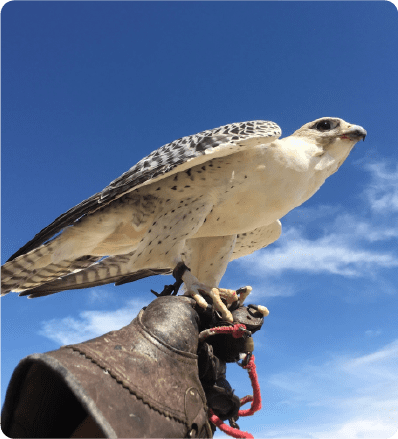What is Wildlife Rehabilitation
Wildlife rehabilitation is a specialized practice that focuses on providing care, treatment, and support to injured, orphaned, or sick wild animals. This vital process aims to rehabilitate and reintroduce native animal rescue into their natural habitats. Wildlife rehabilitation involves several key aspects:
- Animals hurt or in distress are saved and taken to rehabilitation facilities for evaluation and initial care.
- Skilled veterinarians offer medical care, surgery, and continuous healthcare to address injuries or illnesses.
- To reclaim their standard behavioral and physical capabilities, animals get specialized care that includes the correct diet, physical therapy, and socializing.
- The animals are monitored to guarantee proper reintegration before being released back into suitable habitats once fully healed.
How to Find a Wildlife Rehabilitator
It would be best to act calm when encountering an ill, injured, orphaned, or wild animal. These will help you to locate a wildlife rescue rehabilitation:
Observe the Animal
From a safe distance, evaluate the animal’s health. Try to do it without aggravating it.Contact the Authorities
Contact your local animal control, wildlife agency, or environmental department for guidance and information.Search the Internet
To locate certified and accredited rehabilitators in your region, use online directories like the Wildlife Rehabilitators Directory. You can also look at state-specific wildlife rehabilitation groups in Ogden.Wildlife Rehabilitation Center of Utah
The Wildlife Rehabilitation Center of Utah is committed to offering native wildlife species expert treatment and assistance. Their main objective is the rehabilitation of sick, injured, orphaned, or abandoned animals.
They work for the effective facilitation of their return to their native habitats. The facility provides specialized medical care, rehabilitation, and fitness programs catered to the individual requirements of each animal.
They work compassionately to secure the welfare and conservation of Utah’s animals. They are also fostering their survival and enhancing the general well-being of regional ecosystems.
Wildlife Rehab and Care For Other Animals
Providing care, rehabilitation, wildlife rescue center, and support to non-wildlife animals who need it falls under the category of wildlife rehab. Native wild animals are the main focus of wildlife rehabilitation.
Domestic pets and alien species can also benefit from comparable rehabilitative efforts. This may entail offering medical care, rehabilitation programs, socializing, and rehoming services in Ogden to guarantee these animals’ well-being and healing.
The fundamental objective is to provide the required maintenance and assistance to all animals in need, regardless of their species or place of origin.
Wildlife Health Laboratory
The Animal Health Laboratory is an inspiring animal rescue organization devoted to looking into and examining all facets of animal health.
The laboratory is a critical component in comprehending and keeping track of the health of wildlife populations. It significantly focuses on disease surveillance, diagnostics, research, and conservation initiatives.
They investigate illnesses and identify them through in-depth testing. This helps to identify and treat health hazards early on.
The laboratory has a wildlife rehabilitation permit, and its research activities help create conservation plans and offer insightful information on the health of animals. The laboratory prioritizes these issues by promoting ecosystem preservation, the long-term survival of numerous species, and wildlife health.

Contact Us
